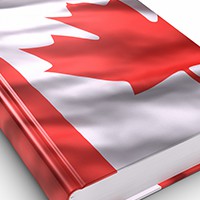Last updated: May 13 2013
Understanding How to Work with CRA, Post-Season

Taxpayers and their advisors must prepare documentation and filings that follow both the laws created by the Department of Finance and the interpretation of the law by CRA. This has been proven again and again in the Courts. That’s why taxpayers and their advisors must understand the rules and how to comply with them, not just during tax filing season, but in its aftermath, too.
On November 1, 1999, the Government of Canada dissolved the Department of National Revenue and created what is now known as Canada Revenue Agency (CRA).
CRA was created with three main objectives:
- To provide better service to Canadians by focusing on the needs of taxpayers and benefit recipients;
- To become a more efficient and effective organization with greater administrative flexibility; and
- To establish a closer partnership with the provinces and territories.
And, of course, the key activities are to collect billions of dollars in taxes annually and distribute billions in ongoing benefits and tax credits programs. In CRA’s Report on Plans and Priorities issued for 2012-2013, the Honorable Gail Shea, Minister of National Revenue noted that in carrying out its mandate, CRA strives to ensure Canadians:
- Pay their required share of taxes;
- Receive their rightful share of entitlements; and
- Are provided with an impartial and responsive review of contested decisions.
The Agency has tremendous powers in doing so. The CRA is responsible for:
- Interpreting and enforcement of legislation
- Administering the application of the legislation
- Determining the policies and procedures
- Implementing the policies and procedures
- Enforcing the policies and procedures
CRA is mandated under the Canada Revenue Agency Act to undergo a statutory review every five years. During the first review in 2005, the Honourable Carol Skelton, then Minister of National Revenue, stated:
“Within the CRA Act, our agency was given a one-of-a-kind mandate. For example, the agency has independence and freedom from political interference. It has unparalleled powers that enable it to operate more like a business, bringing the strengths of both public and private sectors together to improve services to Canadians.”
Join us May 22, 23, 24, and 27 as Knowledge Bureau travels to Winnipeg, Calgary, Vancouver, and Toronto to deliver a dynamic 6 hour CE accredited, certificate workshop on professionalism in working with the CRA. Entitled Audit Defence Bootcamp: The Rules of the Game, this workshop will prepare tax, accounting, and wealth advisors who advocate on behalf of their clients with CRA to confidently communicate and assemble supporting documentation and responses to tax audit requests. The objective is to facilitate a more effective relationship between the three parties – the client, the tax advisor, and the CRA – with a consistent strategy, process, and plan for communication.
